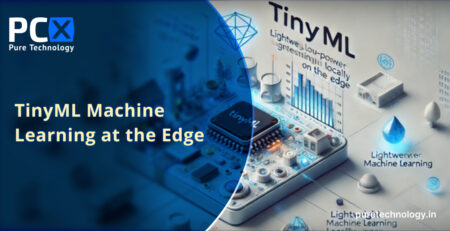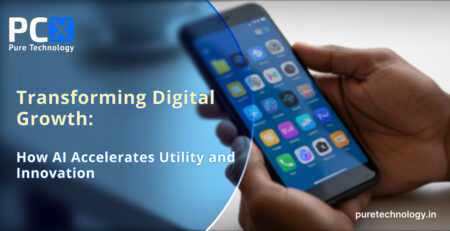7 Best IoT Platforms for Business in 2022
The market for Internet of Things (IoT) platforms is constantly evolving. According to the report, the global market value of IoT platforms is expected to reach $74.74 billion by 2023. The demand for IoT platforms is due to the increase in IoT devices and other related factors. A consultant – “IoT platform” is needed so that IoT devices and various factors can communicate and interact in the environment and create the highest business value
What is IoT Platform?
IoT Platform is a middleware solution that connects IoT devices to the cloud and facilitates seamless data exchange across the network. It acts as an intermediary between the application layer and the hardware.
There are countless IoT service providers on the market today, and each platform has its own importance in making IoT integration and management easier and faster.
Top Seven IoT Platforms

(1) Cumulocity IoT Platform:
One of the leading IoT platforms for single device and application management, providing greater visibility and improved remote asset management. It is a comprehensive cloud-enabled platform that makes business information and asset management easy and worry-free.
Features:
- Connect objects on a network using a simple plug and play approach
- Manage and monitor real-time analytics by providing configurable dashboards
- Connect existing programs with a simple workflow integration
- Secure mobile Devices (Easy to use Android and iOS)
(2) Microsoft Azure IoT Suite:
This is an open source, cloud-based platform that helps bring native intelligence to the distributed Internet of Things. One of the best IoT platforms, Microsoft Azure IoT Suite has virtual machines that provide an efficient and flexible environment. The size of the virtual machine can be adjusted according to the workload.
To work in Azure IoT Suite, the user must pass commands through the Azure power shell to start and stop servers and write tasks. This platform does not provide control.
Features:
- Enables device acquisition, creating a unique identity for each device
- Provides cloud-based dashboards with rapid access to data across devices and application requests
- Enables real-time streaming analytics to improve decision making
- Facilitates continuous data analysis for Operations Research
- Equipment and processes used Provides remote monitoring to monitor
(3) Google Cloud IoT Platform:
It Provides complete tools to connect, process, store and analyze data on edge and cloud. As one of the leading IoT platform providers, Google provides comprehensive cloud-based management services for the endpoint/on-premises platform. The platform also provides continuous AI capabilities for devices powered by Cloud IoT Edge. It also checks the device’s performance and performs firmware updates. While most of the tools are provided by Google, it is worth noting that there are supported programming languages for building applications on this platform.
Features:
- Enable predictive maintenance of equipment and optimize equipment performance in real time
- Continuously monitor equipment status, status and location
- Work hard, store information and connections status
- Process at cost per minute
- Provides large storage, reduces server maintenance costs
- Provides integration with other services Google
- supports large files.
(4) AWS IoT Platform:
One of the most reliable and secure IoT platforms, AWS IoT not only helps you connect devices to the cloud, but also secures interactions with the cloud and other uses on your device. The AWS IoT platform allows applications to monitor devices and facilitate 24/7 communication between devices even when they are not connected to the internet.
Features:
- Provides fast and easy connectivity between devices and applications and facilitates authentication and message exchange using the WebSockets protocol or HTTP or MQTT
- Provides a gateway script to manage all connected devices without message management low latency applications and devices
- Encrypts data exchange with authentication of each element
- Assign unique identifiers to objects so that metadata of linked objects can be tracked
(5) IBM Watson IoT Platform:
It is IBM’s PaaS based development platform. The platform allows beginners to get started by providing simple applications for IoT services. As one of the best IoT platforms, IBM Watson provides real-time data exchange, secure communication, and sensor data and weather data. It can handle a lot of information and provide good customer service.
Features:
- Provide an open container that facilitates the migration of workloads to the cloud
- Design, optimize and integrate tools for applications in the cloud
- Analyze uncomplicated and understandable data structures to gain useful insights
(6) Cisco IoT Cloud Connect:
This IoT platform is a cloud-based mobility suite that provides solutions for mobile users and transforms options for devices. The platform usually provides a “data and voice connection”. The security of this platform is guaranteed by Cisco Kinetic. The platform also extracts IoT data from devices connected to the IoT network, normalizes the data so that it can be used by applications, and improves it by applying rules to data in motion
Features:
- Better visualized. and manage IoT gateways
- Enable computing in collaborative sharing, use network resources efficiently
- Allow free information about cloud-based connected devices and applications
- Provide real-time updates.
(7) Oracle IoT Platform:
The platform provides real-time data analysis, end-to-end management, and instant messaging to deliver notifications directly to customers. Also, one of the best IoT platforms is a PaaS-based cloud computing platform that allows users to connect devices to the cloud, provide real-time insights by analyzing real-time data from equipment, and integrate data with real-time applications. network. services or Oracle Cloud Services.
Features:
- Support interoperability and communication between connected devices and cloud applications
- Store metadata information on devices to understand the capabilities, features, and lifecycle of connectors
- Provide Oracle BI cloud services to support the evolution of data visualization
- Support big data analytics
Categorization of the IoT platforms
| Hardware-Specific Software Platforms | Consumer/Enterprise Software Extensions | Connectivity or M2M Platforms | IaaS Backends |
| 1) Google Cloud IoT Platform 2) AWS IoT Platform 3) Cisco IoT Cloud Platform | 1) Microsoft Azure IoT Suite 2) Cumulocity IoT Platform | 1) Google Cloud IoT Platform | 1) Oracle Cloud Platform 2) IBM Watson Cloud Platform |
IoT Platforms: Creating Business Value
IoT platforms play an important role in creating business value, but businesses must choose wisely. There are many things to consider. For example, how does the provider provide the SDK (Software Development Kit), documentation, support and API interface? Businesses should also evaluate the process against size limits, pricing, and support levels.
Also factors such as support, availability, recovery time objective, recovery objective, and smarter IoT service providers should provide cloud support and analytics.
They should allow businesses to adapt the platform to their business model and experience.
Whether choosing an IoT platform or IoT protocol, it is important to know that the choice must be made after understanding and analyzing the needs and state of your business.
Call us for a professional consultation












Leave a Reply